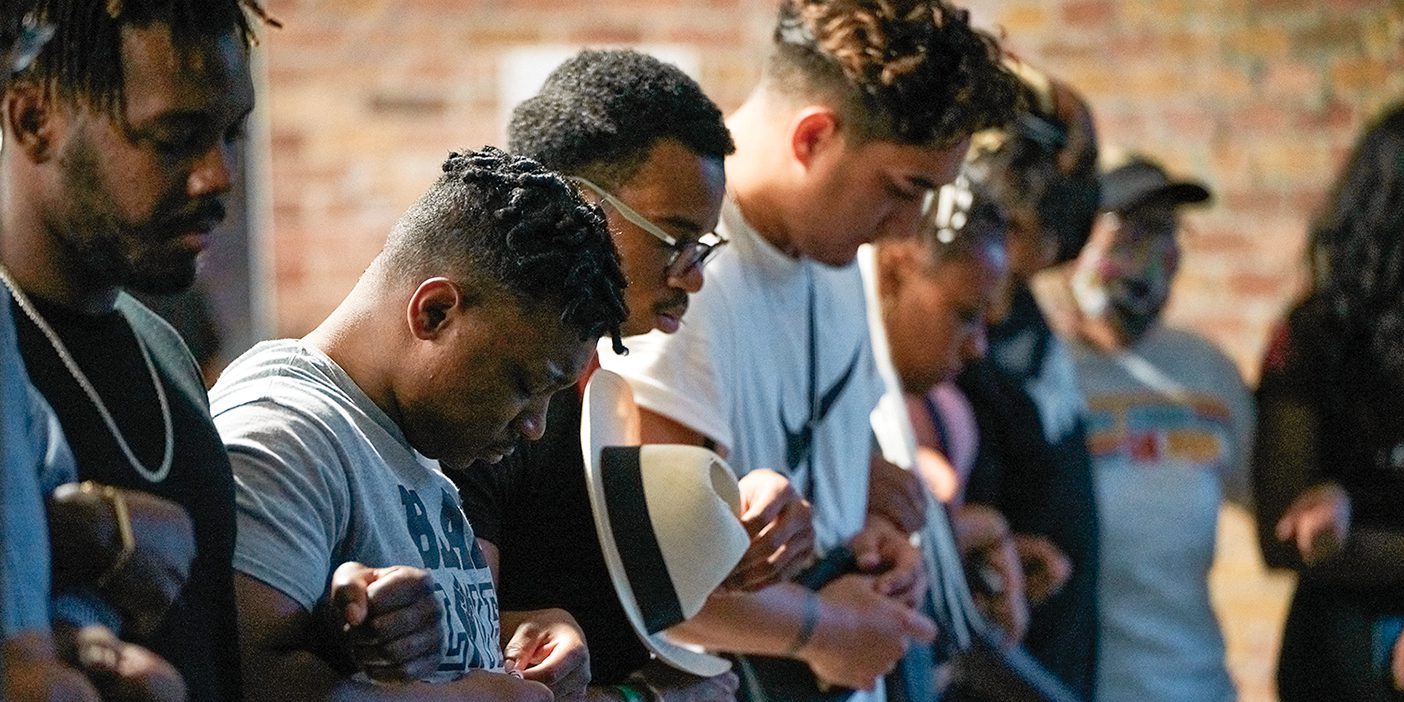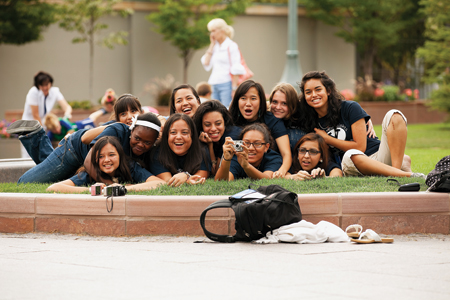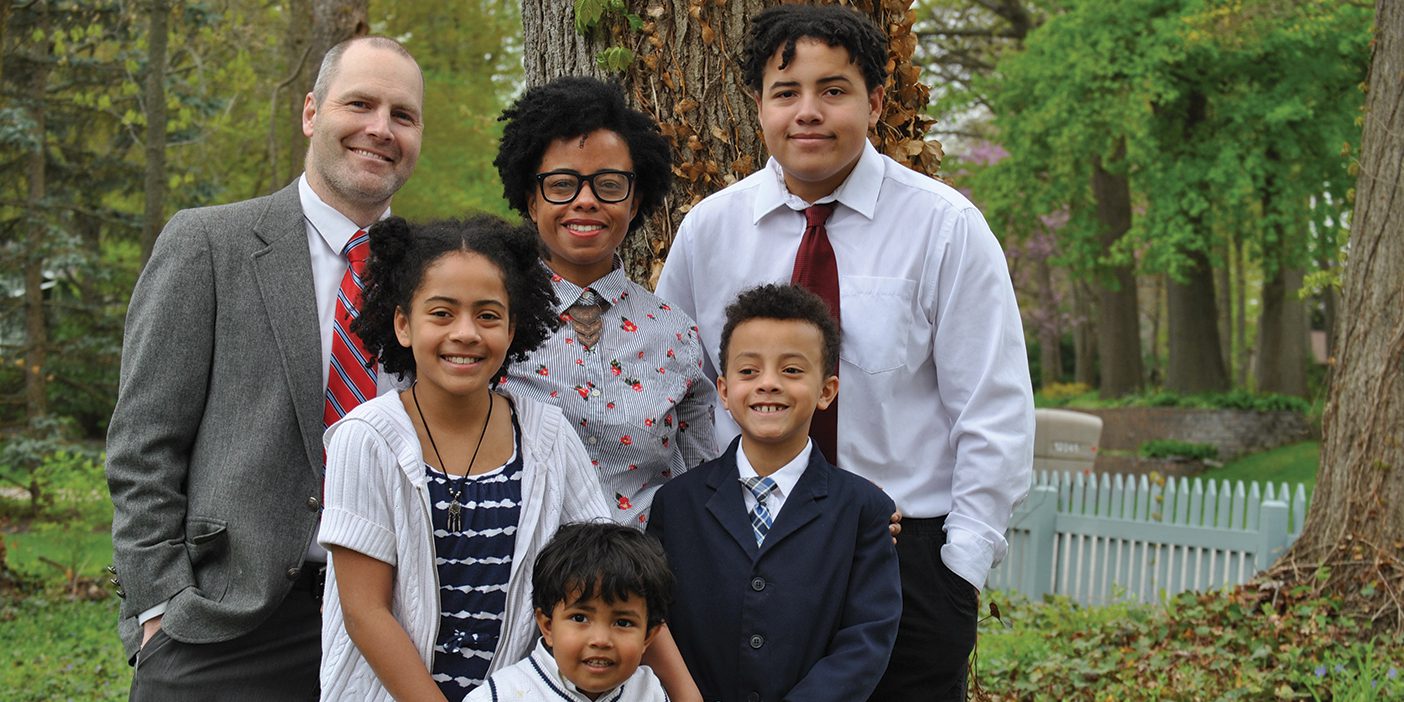Black at BYU
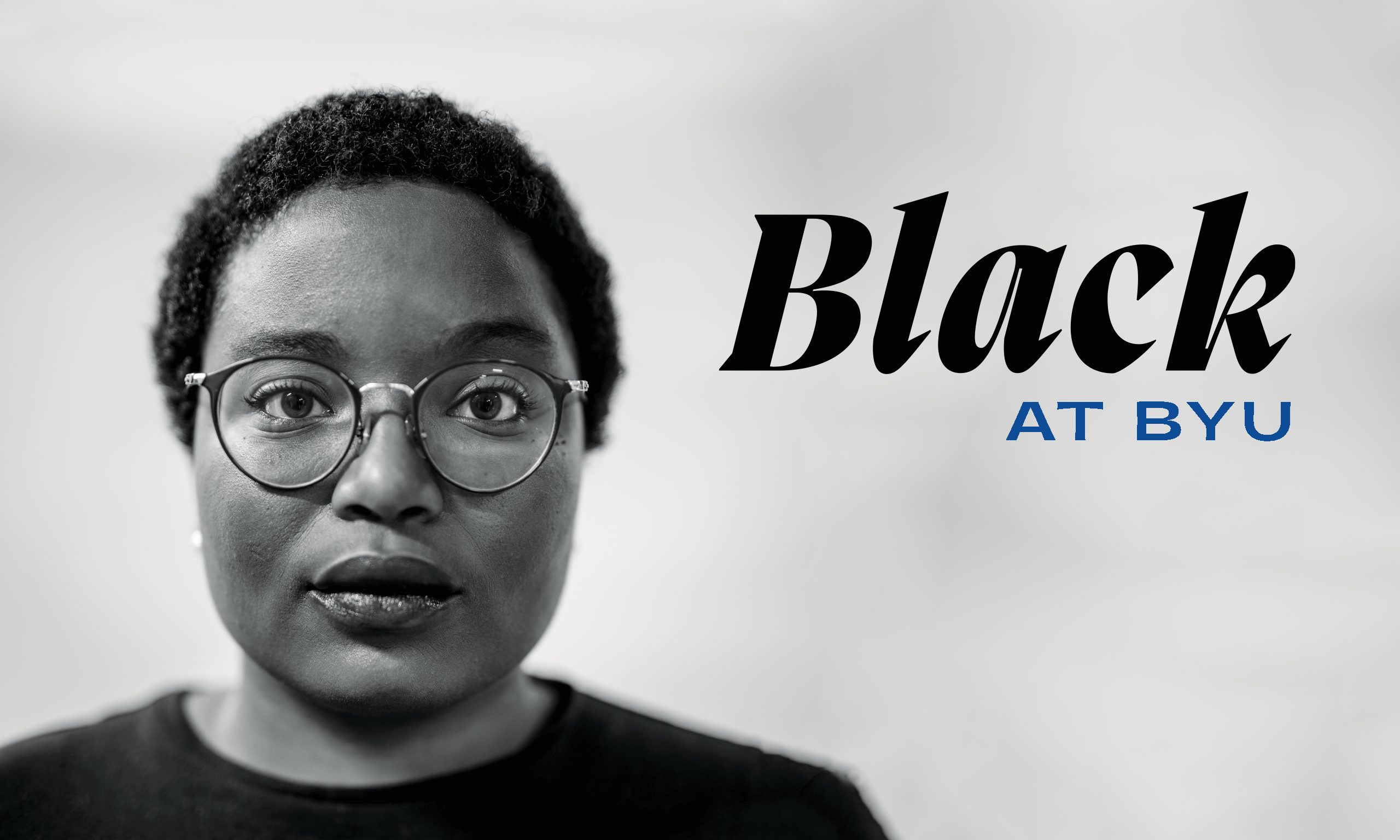
What is it like to navigate the reality of being a Black person on an overwhelmingly White campus? Students, alumni, faculty, and staff share stories of hope, struggle, and paths forward.
By Peter B. Gardner (BA ’98, MA ’04) in the Fall 2020 Issue
Photography by Bradley H. Slade (BFA ’94)
It’s hard to find a more enthusiastic BYU student than Batchlor V. Johnson IV (’21). “I’ve had a great experience at BYU,” says the mass-comms grad student, talking up his friendships, professors, and program. “That’s my school.” But as an African American on a campus where just over 1 percent of students are Black, he acknowledges the challenge of finding a place as a person of color. Much as he loves the university, he says coming to campus “is just a huge, huge transition,” one that for many Black students involves pain, misunderstandings, and loneliness.
As the university reflects on minority experiences at BYU (see “Building Belonging,” below), BYU Magazine invited a handful of Black BYU students, alumni, and employees to share their stories surrounding race—both memories that caused them to feel “other” and “less than” and those that pulled them more tightly into the circle of belonging and continue to give them hope for the promise of a Zion community.
Coming to BYU
Karmen N. Kodia (BA ’20): I wasn’t planning on BYU. I got my associate’s degree at a school in California and planned to finish up at another school there. But for some reason BYU would always come up. Being Black, I knew there wasn’t a lot of ethnic diversity at BYU. But I prayed about it and just felt like I should apply. It was the only school I applied to. I knew that’s where God wanted me to be. My BYU experience has been hard, but it’s also been the best experience I’ve had. I’ve never regretted coming.
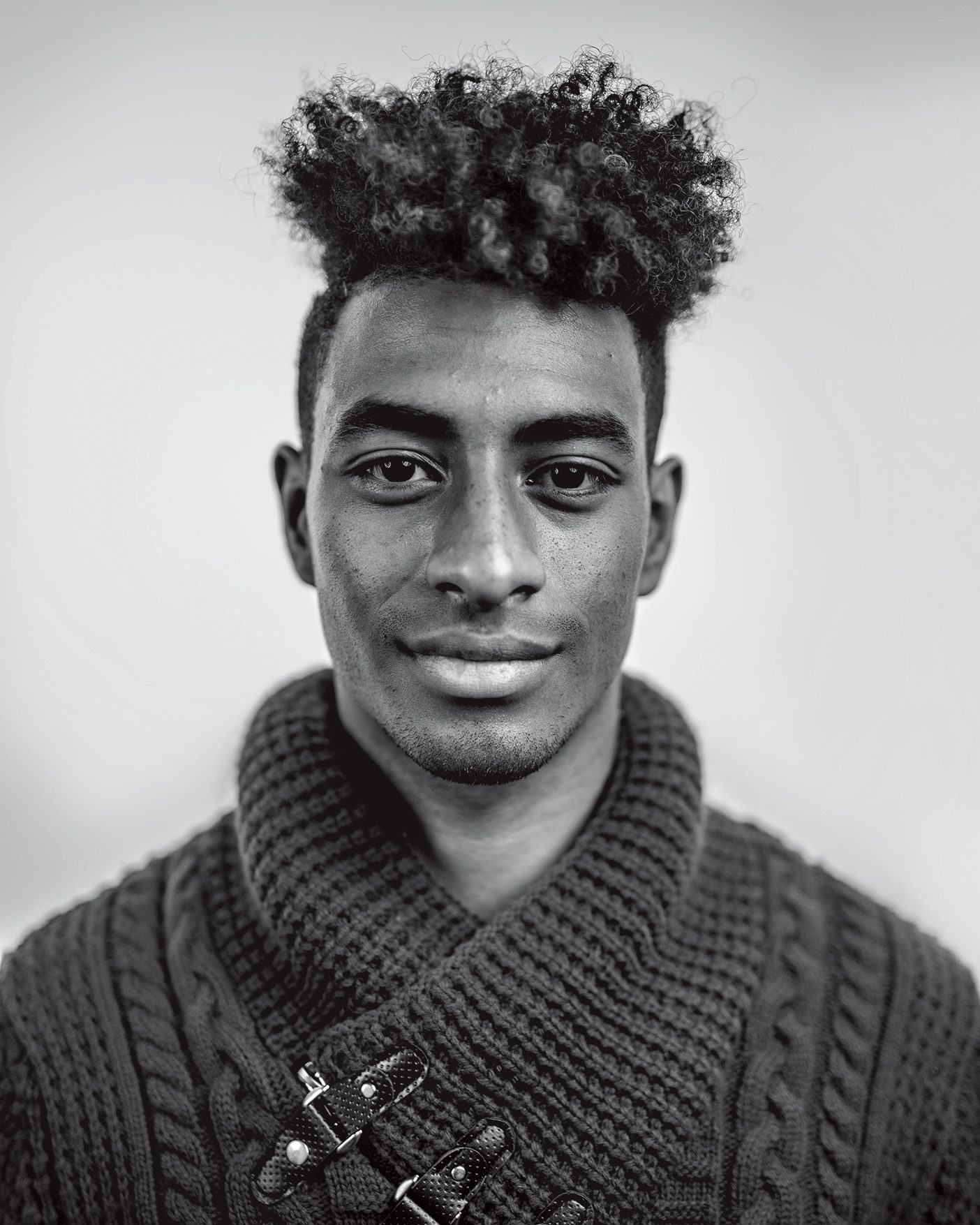
Johnson: I first came to campus for the SOAR program—which is basically a multicultural EFY. It changed my perspective about what I could do and what I could accomplish. As I left SOAR I just set my sights on Provo for college.
Rachel M. Weaver (’22): I’m from the South Side of Chicago. I looked at BYU’s demographics, and I was so scared. But I prayed about it, and God told me to come here. And so I was like, “Well, all right, I’ll go to Your school.”
I remember my first week at my student ward, I went home and cried. Nobody did or said anything mean to me. But I didn’t see any Brown people there, any Hispanic people, any Polynesian people, any Black people. I just wasn’t used to going to a congregation where I was the only person of color. I didn’t know how to act. I was like, “How do I be myself?”
Anthony B. Bates (BS ’04, MPA ’11): Many of our students of color come from outside of this community. They may have been one of the few members of the Church in their own community. There’s this desire for a reprieve at BYU, this hope that “the gospel culture’s going to unite us all and I can just rest.” Then they come to BYU and this is the most cognizant they’ve ever been of their race. That is the hardest part—the feeling that they shouldn’t have to work through these things at BYU, but in all reality, they do.
Lita Little Giddins (BA ’92, MSW ’95): When I arrived at BYU as a student in the 1980s, it was assumed that I understood things, this language, this culture, the majority experience. But I felt culturally different. The way I dressed. The food I liked—I missed my mother’s and grandmother’s Southern cooking. I wondered, “How do I navigate this world that is so predominantly White? Where does the world of my upbringing fit? Does it? What should I do? What shouldn’t I do? Who do I talk to? Who do I not talk to? Should I talk at all?”
Things People Say
Ryan P. Gabriel: The type of racism that Black faculty and students at BYU experience may not always be overt—like someone saying the N-word—although that can happen. Instead, most of it is subtle. I think individuals at BYU have really great hearts with a strong desire to do good, but sometimes there’s a lack of understanding around the issues that impact racial and ethnic minorities, which can cause pain. I wouldn’t go so far as to call this lack of understanding racist in a traditional sense. For generations, White individuals and people of color have often lived and socialized in separate spaces in America. Over time this has led to a lack of meaningful relationships that can make it difficult for White individuals to understand the challenges that people of color face.
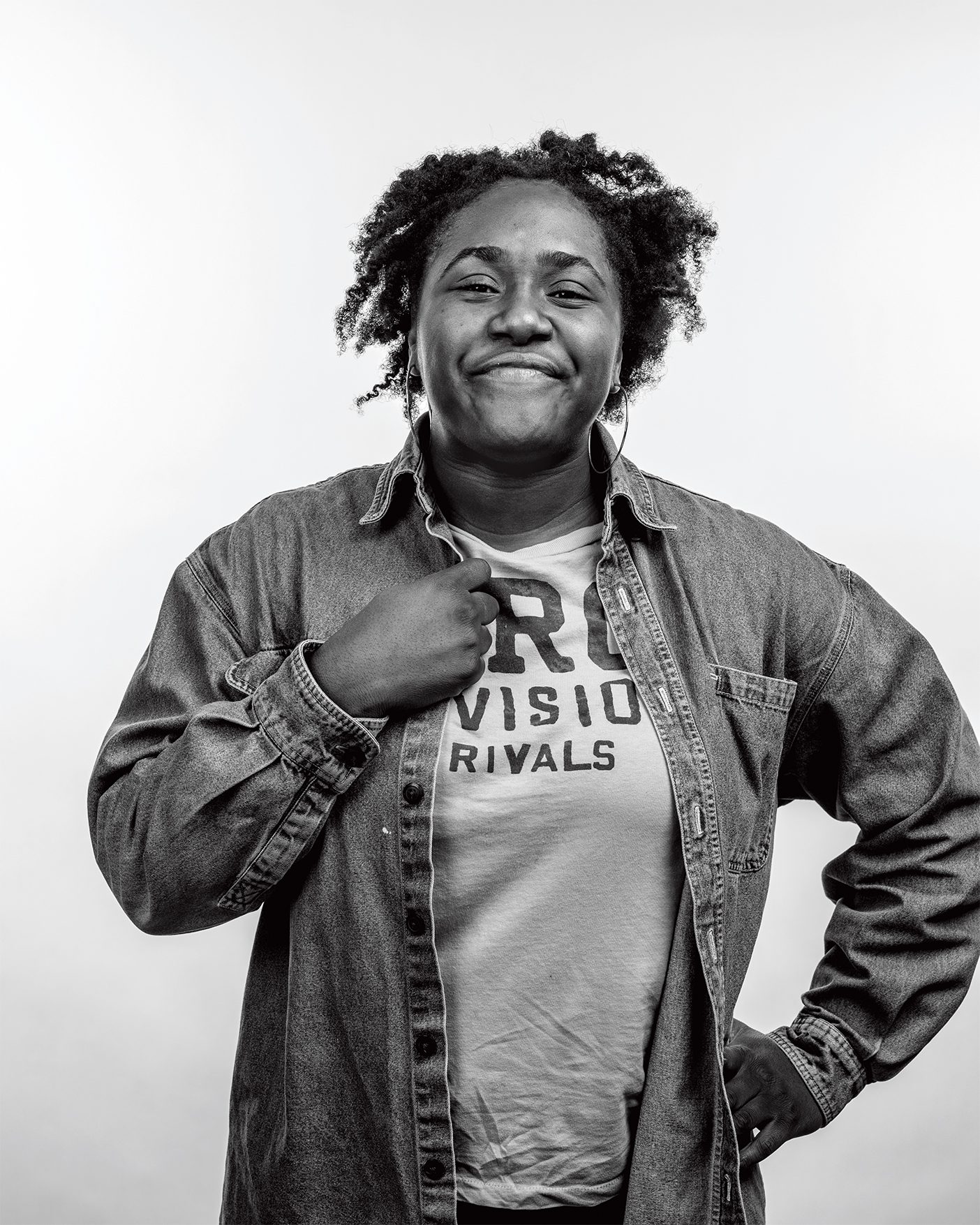
Brianna K. Moodie (’21): It was right before a Women’s Chorus Christmas concert. I was one of the only Black women in the choir, which was fine because I grew up in Utah and was used to it. We were putting on makeup and talking, and a girl said to me, “You’re the token Black person in this choir.” I was so shocked. I just didn’t know what to say. I wasn’t upset with her, but I just started to overthink things: “Do I even belong here in this chorus? Did they just put me in because they wanted more diversity?”
Evelyn M. Harper (’21), pictured at top: My freshman year I realized that there were negative connotations with my urban accent. It’s just how I spoke at the time. I remember I was taking an arts class and asking a normal question about the material. My professor laughed at me and so did the rest of the class. I don’t know if it was how I phrased it or my accent, but everyone just laughed and then moved on. I looked over to my friend, and I was like, “Did that really happen?”
Kofi A. Aidoo (’21): “What sport do you play?” It’s the ice-breaker question. People assume that a Black person at BYU must be on a sports team. Others have said, “Oh, you probably got in because you are Black”—discrediting my efforts as a student.
Learning Together
Harper: At Halloween time a couple of years ago, a student in the School of Communications who didn’t understand the history of blackface painted his face for a costume. It could have been seen as a very small thing, it could have been brushed under the rug. But instead, Edward L. Carter (BA ’96, JD ’03), the director of the School of Communications, not only was very transparent about his concerns, but he took steps to figure out how to prevent things like that from happening in the future. That was powerful to me because I felt like, “I can trust this leader. If I have a problem, I could come to him and he would do something about it.”
Gabriel: In my classes on race and ethnicity, it’s beautiful to see students of all races and ethnicities come together and grow in a shared experience of our understanding about race in America. They learn that they don’t have to be afraid of the topic of race. Frequently, they recognize how opening up to the stories of people who are different than them and their unique challenges can help them learn to better serve their brothers and sisters.
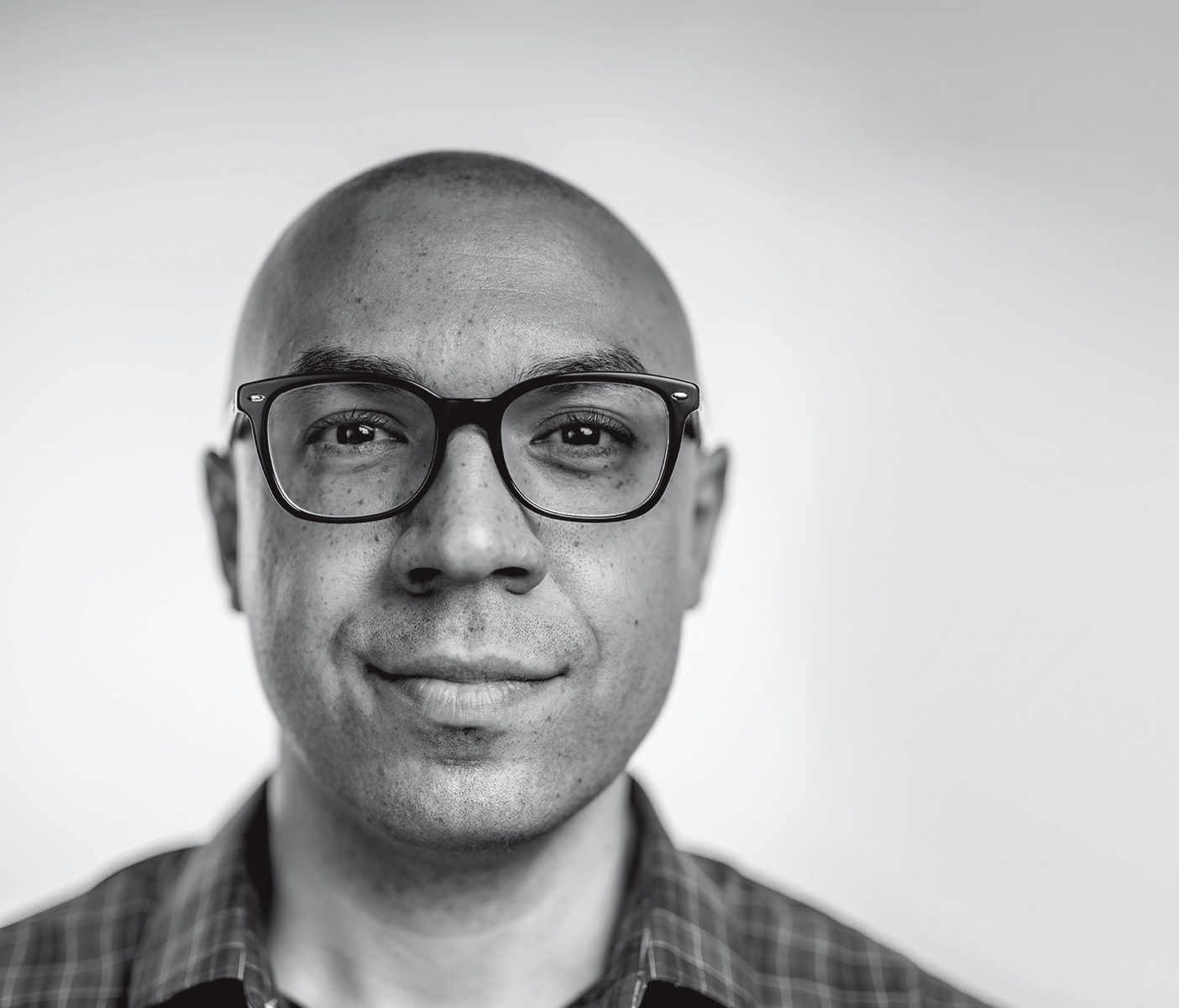
“[We] don’t have to be afraid of the topic of race.” —Ryan Gabriel
Weaver: This year’s Perspectives—a campus performance that celebrates Black history, culture, and art—was almost a spiritual experience for me. A couple of days before, there had a been a panel discussion on campus where some anonymous racially insensitive comments were shared. But then more than 1,200 people showed up to celebrate Black culture. It was so beautiful to see so many people come out and support us.
And then President Kevin J Worthen (BA ’79, JD ’82) stood up to apologize to Black students and the whole community for what had happened at the panel. That was really powerful to me—to know the president of this university sees our pain.
Gabriel: Members of the Church can have historical empathy with African Americans. Latter-day Saints were heavily persecuted and even murdered, having to flee west. Although certainly different in degree, that persecution is somewhat similar to state violence that has happened toward African Americans. When individuals find that empathy, that shared connection, it’s so much easier to be naturally charitable. They can recognize that ultimately the other is human, just as they are, a daughter of God, a son of God.
Feeling Other
Moodie: There’s a feeling of loneliness and otherness, but I don’t always know what it comes from. Is it a racial thing? Sometimes you just don’t know. Often there’s this intangible feeling that people are friendly, but that they’re not your friends.
Aidoo: When I meet someone new, their first question is, “Who’s your favorite rapper?” or, “Do you love to ball?” Would they say that to anyone else? It feels really forced and creates awkward situations. I’m constantly questioning, “Is this who they really are, or are they like this because I’m Black and they just don’t have experience with Black people?”
Johnson: I was part of a panel discussion for professors. I remember one question: “How do I talk to my Black students?” And we looked at each other and we were just like, “How do you talk to your son? How do you talk to your daughter? How do you talk to your other students?”
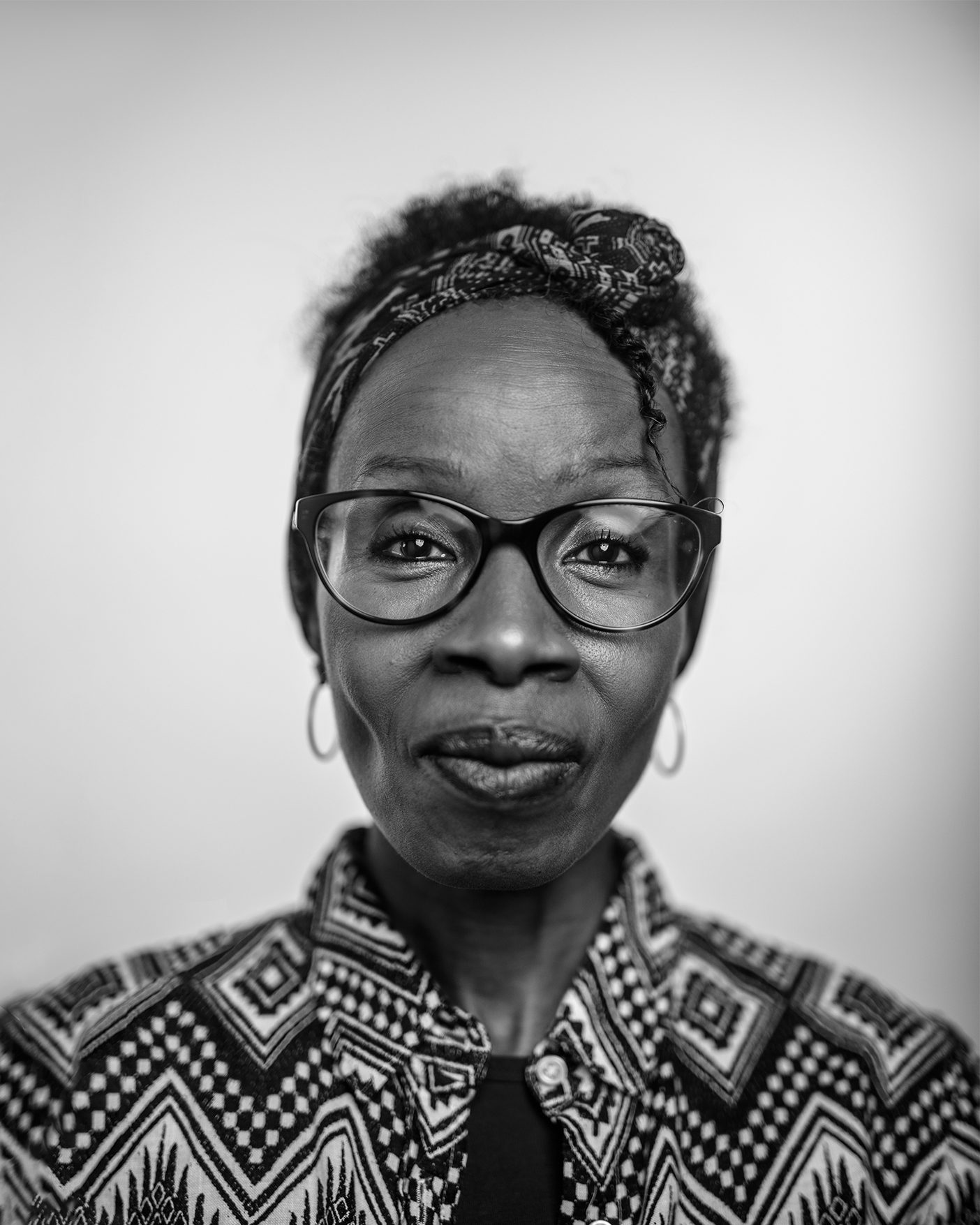
“My Blackness is a sacred thing to me. It’s how God created me, and there’s a purpose in it.” —Lita Giddins
Seen and Heard
Aidoo: I have found belonging in the advertising program, the Black Student Union, with my sociology professors, and at multicultural forums. It’s a breath of fresh air—these people understand and are willing to listen and talk to me and validate the experiences I’ve had. When people give you space and a platform and empathize, it’s really relieving.
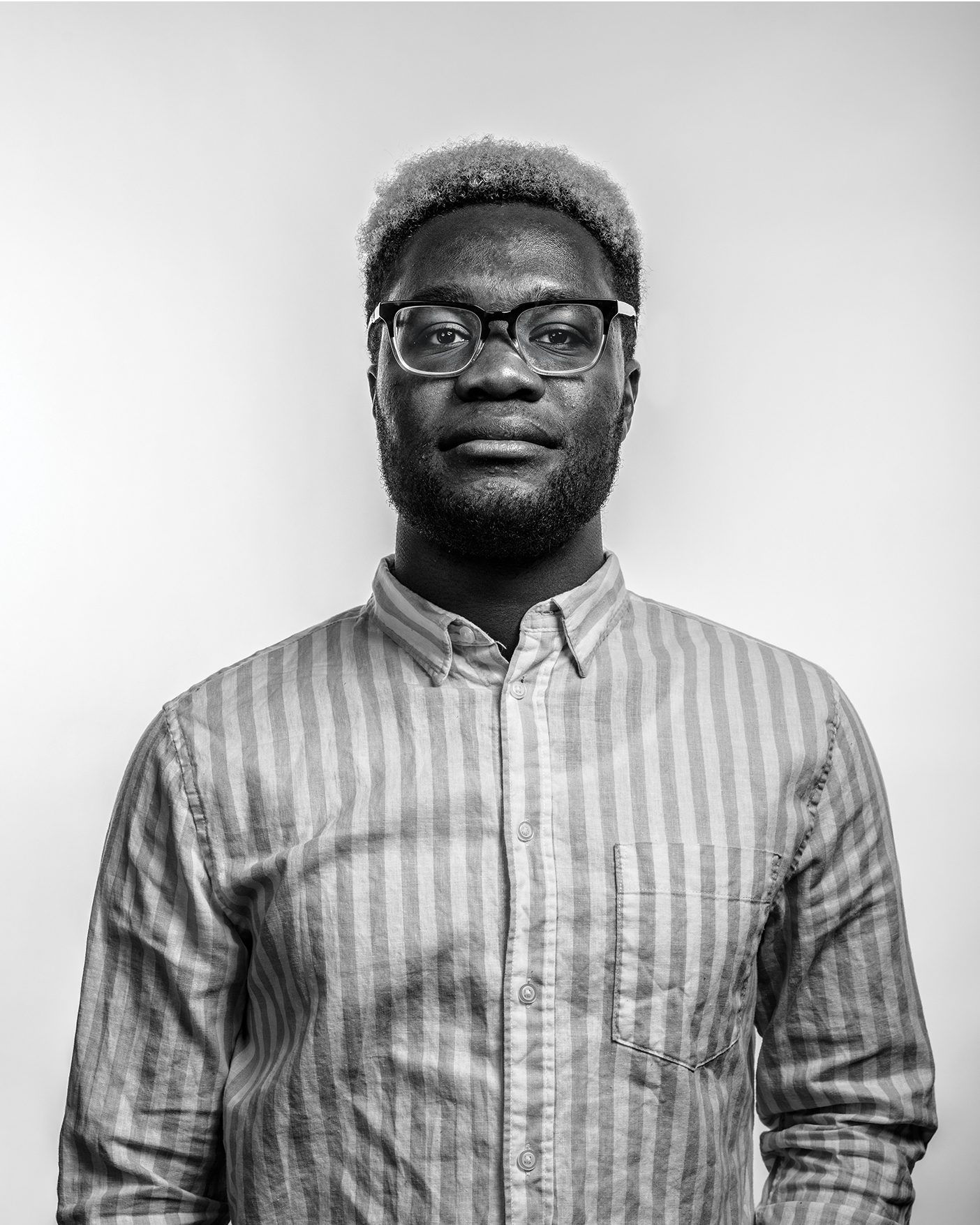
Bates: When students of color come into my office, I just ask them questions. Some tell me that this is the first time they’ve felt understood, that they’ve felt validated, felt heard. They can let their guard down. Until now, they’ve felt, “If something’s wrong in my BYU experience, then there’s something wrong with me.”
Giddins: J. Rex Pugmire (BA ’82), the man who recruited me to BYU, didn’t give up when I initially said I wasn’t interested—bless his heart, bless his soul. At BYU he became my ally, my brother, my friend. He truly had my back. He went out of his way to make sure that I had my needs met. I could go to him whenever I needed to. I had someone I could sit down with and express the thoughts and feelings of my heart. That was a huge gift for me, a huge blessing.
Johnson: People usually listen to respond. When people are hurt, they could be complaining about this, this, and this, but it’s not like they necessarily expect this, this, and this to change. They just want to feel appreciated, loved, heard. They say, “Listen to understand” or “listen to respond,” but I hope people will listen to love.
Giddins: There are people of other races at BYU who give me courage. They are reflections of a God in heaven; they are reflections of a Mother in heaven to me. With them there is an instant connection—of being seen, being valued, and being heard. They see me as a valued contributor to society, they value my experience, they value my intelligence, they value my Blackness.
My Blackness is a sacred thing to me. It’s how God created me, and there’s a purpose in it. It is not a hindrance. It is not a barrier. It is a part of who I am. I seek to access the power of the Atonement of Jesus Christ continually because of it. Being born Black is a sacred gift I have been given to navigate my purpose throughout this life, to draw closer to the Savior, and to assist with the gathering of Israel.
Navigating Religious Complexity
Bates: As a Black member of the Church, you navigate complexity. I watch students wrestle with the priesthood ban and revelation. If they raise questions or concerns in a Sunday School class, it’s often viewed as questioning the Church or the prophet. But they’re simply navigating complexity.
Harper: Religion classes are my worst fear. Racist ideologies have slipped into the way some people discuss gospel principles and are a source of many people’s pain. But I remember a Book of Mormon teacher who could not only give good doctrinal explanations about these issues, but he also objected to any type of racism that came up in students’ comments. It wasn’t a show, and it wasn’t for me. It was part of the curriculum. I didn’t have to say anything to the teacher afterward. I didn’t have to say anything to the students. I didn’t have to feel awkward. I remember thinking, “This is how it should be every time I enter religion classes.”
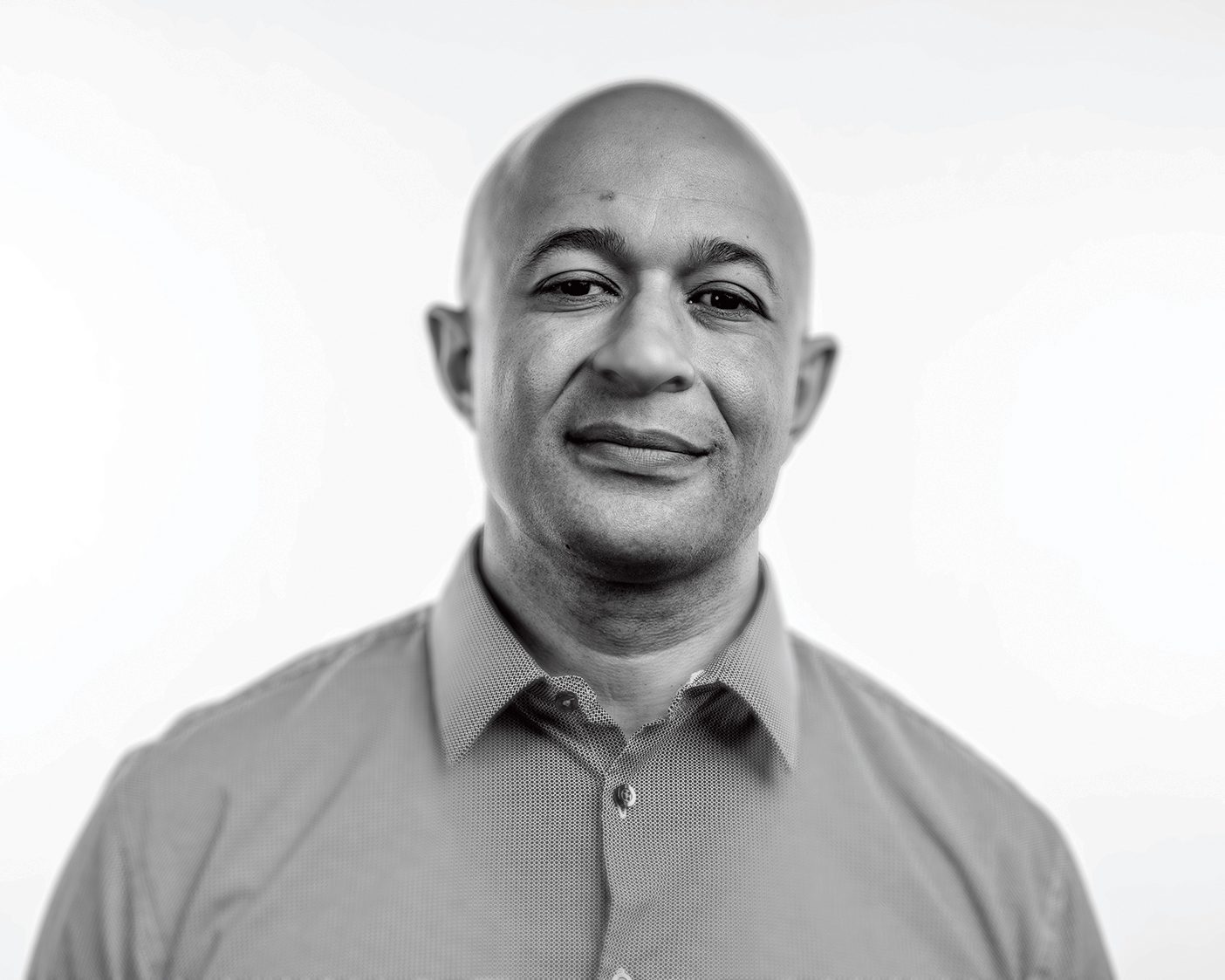
Bates: There is still work to do, but religious education at BYU is making positive strides. I once helped put together a panel where some Black students got to engage with religion faculty members to share how religion classes had impacted them. As they talked the professor-student relationship just kind of melted, and the students became the teachers in the room.
After the panel, Professor Robert C. Freeman (BS ’85) came up to the front. He was in tears. He went to me and to each student—one by one—and he said, “I’m sorry. I’ve been silent on some of these issues. I hope I’ve never said any of the things that you said hurt you. I’m so sorry.”
Under the Spotlight
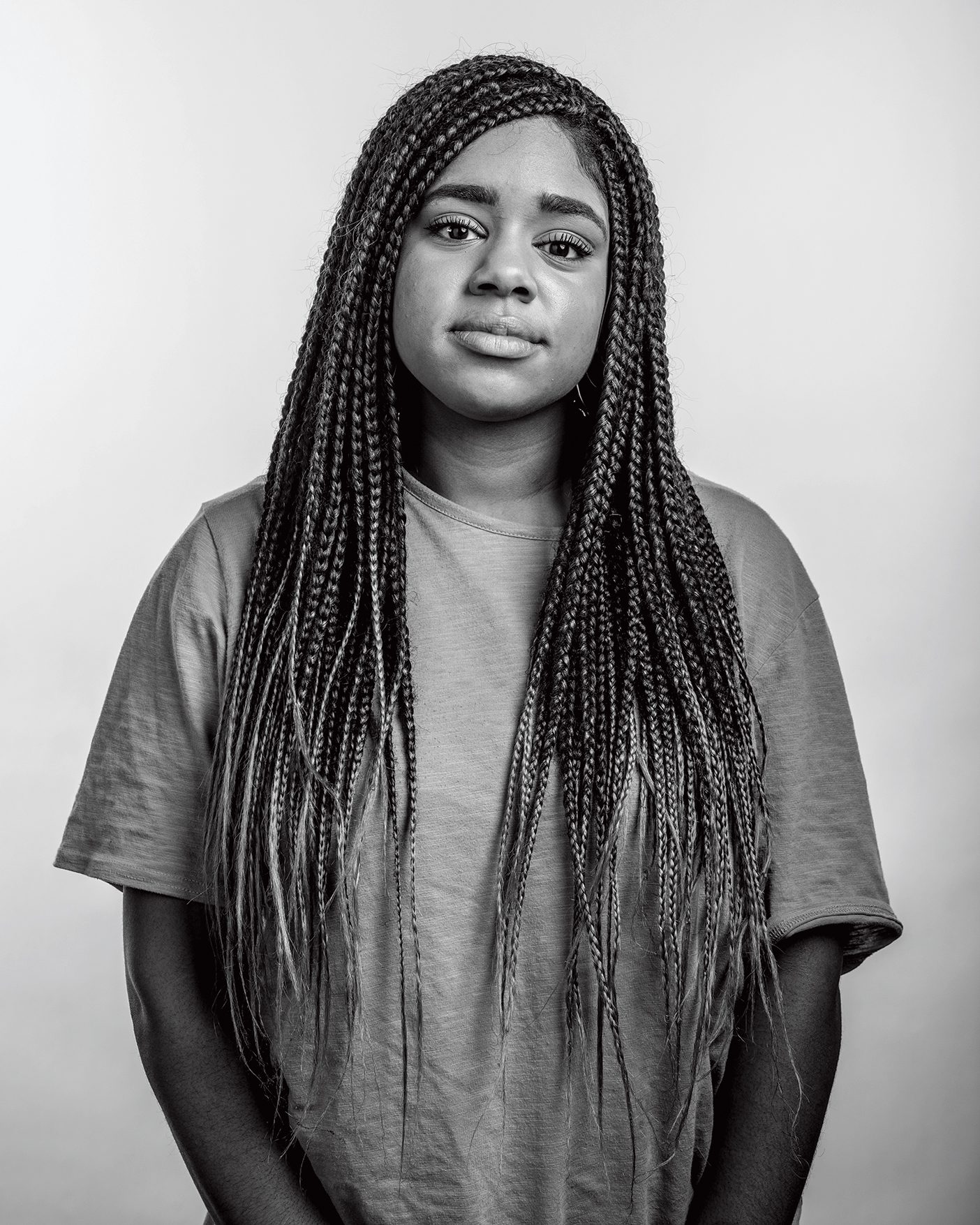
Weaver: I’m really not that special. Back at home, I’m just like everybody else. People underestimate how much someone like me just wants to feel normal and blend in. But for Black students at BYU, that’s nearly impossible. For our entire four years, we have a spotlight on us.
Bates: Each morning I do a mental walkthrough of my day: Who am I going to meet with? Who am I going to talk with? What am I going to have to do to compensate for the preconceived notions that people might already have about who I am and what I stand for and what my intentions are?
We talk about perfectionism here at BYU, but then you overlay expectations that you place on yourself in relation to stereotypes and misconceptions. I think about it this way: If I perform my job in mediocrity, then I confirm stereotypes. If my work is satisfactory, then at least I’m not a burden on somebody. Really, I don’t have any other choice but to be excellent at all times and in all situations and circumstances. Never feeling like you can show weakness or have an off moment is exhausting.
Aidoo: People act like I can speak for the whole Black experience. But we aren’t a monolith. I am Black, but both of my parents are from Ghana. We all have different perspectives and experiences. Honestly, it’s pretty exhausting and draining to feel like I am constantly representing an entire race of people when my identity is extremely intersectional.
Seeking Zion
Giddins: Our world is so divided. And it hurts my soul to still see division on campus. What do we need to do individually to overcome this? Because it affects every single person. If there is someone who is viewed as being less than, then we are getting in the way of the cause of Zion. We’ve got to get better at this. That is not the gospel of Christ.
Bates: The resolution of this is going to be uncomfortable. It’s going to require honest conversations. It’s going to require humility, a commitment to lean into the inevitable discomfort if we truly want to aspire to what I think God wants us to be as a community.
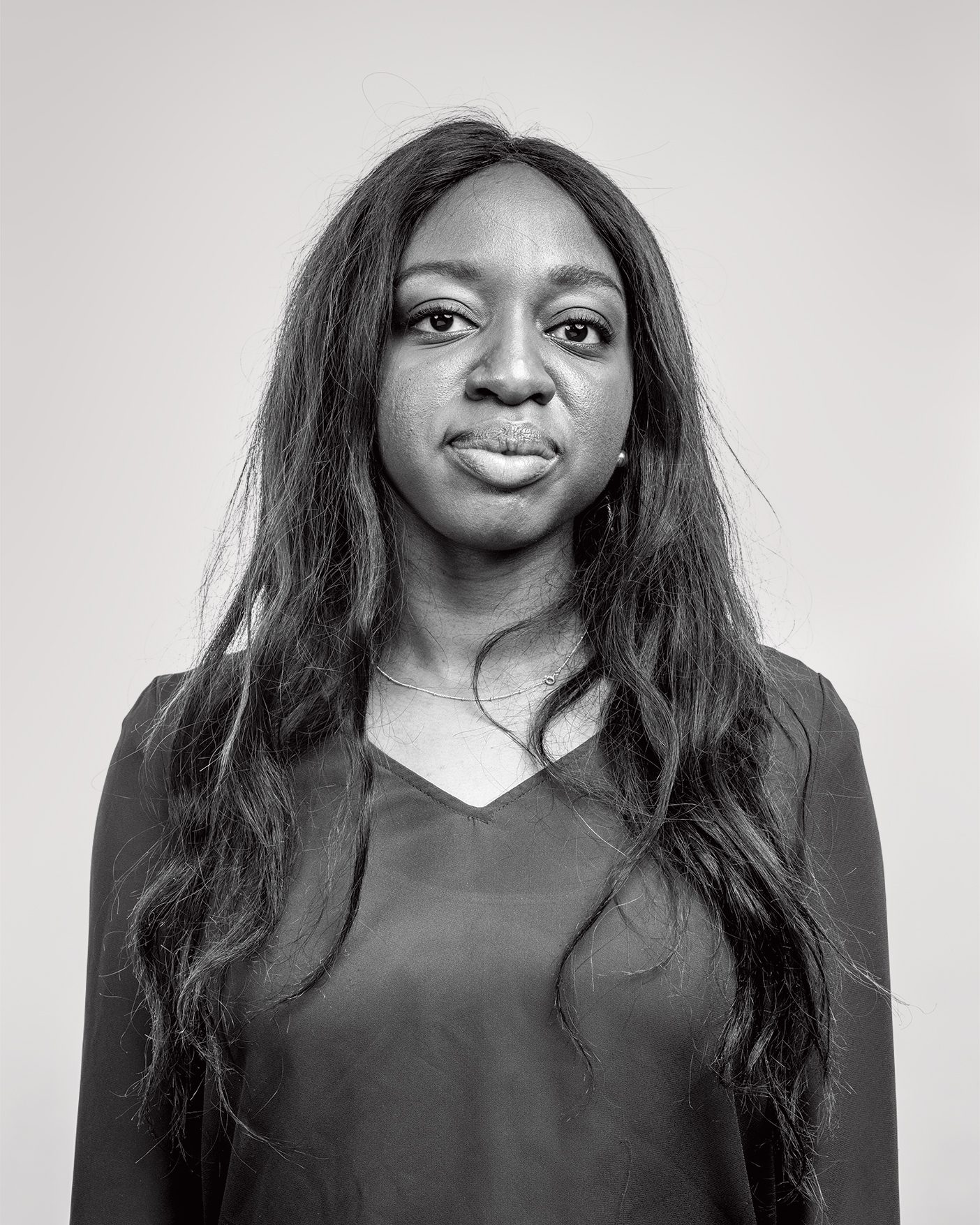
Kodia: If other Black people are thinking about going to BYU but are feeling nervous, I would say to come. Most of my White friends are very understanding and very much wanting to learn. I’ve had great conversations with them about different things when it comes to racism or discrimination or privilege. For me, being the change means a lot.
Bates: I recently had a disappointing day with regard to issues of race on campus. One of my dear White friends was in tune enough to know that I needed a phone call. We didn’t get the chance to talk a lot, but the simple gesture spoke volumes to me—he had thought of me, recognized that that particular day might be difficult, and called to check in. Just being there, being present, goes a long way.
Giddins: What is the culture of God? How can it pervade our campus, our communities, and the world? He has revealed to us—dispensation upon dispensation—this pattern, this culture, that can help us to eliminate divisions, eliminate hatred. The culture of God that has been revealed is to love God and love our neighbor as ourselves. It can infuse our lives with hope and with healing, where joy can be experienced by everyone equitably. That is my hope, that we can all come to embody the culture of God.
Feedback: Send comments on this article to magazine@byu.edu.
Correction: Rachel Weaver’s recollection about her first week in her student ward was adjusted to make clear that it reflected her perception of the racial makeup of the congregation.
Building Belonging
As the nation grappled this summer with questions of racial injustice, police brutality, and ethnic opportunity, BYU looked inward. Noting “the tragic deaths of George Floyd, Breonna Taylor, Ahmaud Arbery, and others,” President Kevin J Worthen (BA ’79, JD ’82) said in a statement, “We know there is work to do, on campus and throughout the nation, for us to better come together, to address injustice, and to truly love one another.”
In June the university announced the creation of the BYU Committee on Race, Equity, and Belonging, with the goals of “rooting out racism, healing its wounds, and building bridges of understanding.” Though the initial emphasis is on the Black experience, the multiethnic committee is seeking the input of all Black, indigenous, and other people of color at BYU as it prepares recommendations for changes to improve the minority experience on campus. The committee’s recommendations will be released late in the fall semester.
Learn more about the committee’s efforts or share your related experiences at race.byu.edu.


